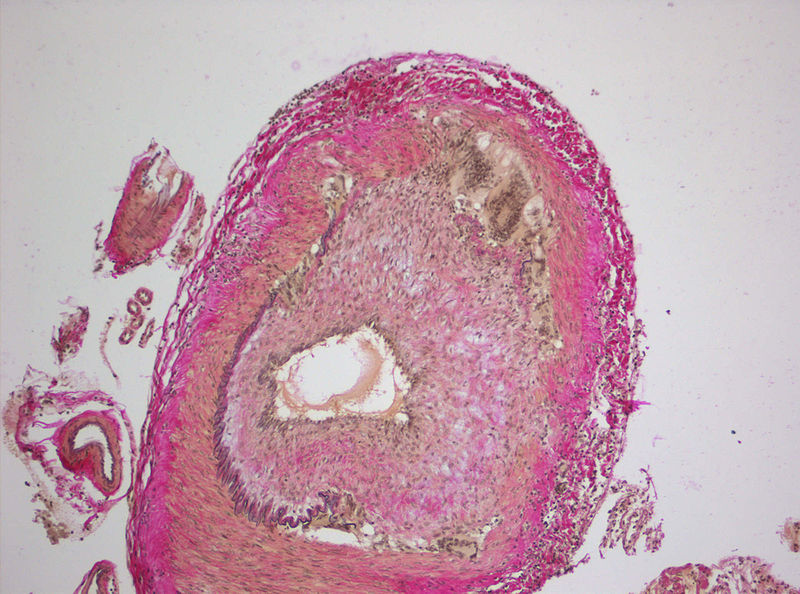
Researchers in UK develop new method to improve drug delivery in cancer treatment
Researchers at Cardiff University developed a method for improving the delivery of therapeutic molecules to kill cancer cells and cells affected by other diseases, such as tuberculosis.
Due to their inability to reach the targeted parts of an affected cell, several drugs treatments fail to work in patients, the scientists said.

Discover B2B Marketing That Performs
Combine business intelligence and editorial excellence to reach engaged professionals across 36 leading media platforms.
In order to overcome such problems, researchers at the University’s Schools of Pharmacy and Pharmaceutical Sciences, and Biosciences had attempted to find ways to improve the delivery of a relatively new class of drugs called biotherapeutics.
New skin cancer drug trial commences at The Royal Marsden in UK

The trial of a new skin cancer drug, BAL3833/CCT3833, commenced at The Royal Marsden NHS Foundation Trust in the UK.
The first patient was treated with a new panRAF inhibitor, which was being developed to solve the problem of drug resistance in advanced skin cancer and multiple other cancer types.
PanRAF inhibitors are said to block several key cancer-causing proteins at once including BRAF, which had been responsible for about half of all melanomas.

US Tariffs are shifting - will you react or anticipate?
Don’t let policy changes catch you off guard. Stay proactive with real-time data and expert analysis.
By GlobalDataGSK, Emergent and Oxford University commence trial of Ebola vaccine candidates
British drugmaker GlaxoSmithKline (GSK), Emergent BioSolutions and the University of Oxford commenced a new Phase I study of Ebola vaccine candidates.
The trial was to study the use of a modified vaccinia Ankara (MVA) Ebola Zaire vaccine candidate (MVA EBOZ) as a prime-boost to GSK’s Chimp Adenovirus type 3 (ChAd3) Ebola vaccine candidate.
The trial obtained regulatory approval from the UK’s Medicines and Healthcare Products Regulatory Agency (MHRA), and was carried out by a clinical research group led by professor Adrian Hill of the Jenner Institute at Oxford.
GlaxoSmithKline begins Phase III trial of sirukumab to treat giant cell arteritis

GlaxoSmithKline (GSK) began a Phase III trial evaluating sirukumab, a human anti-interleukin (IL)-6 monoclonal antibody, to treat patients with giant cell arteritis (GCA).
Sirukumab is an investigational human anti-IL-6 monoclonal antibody. It binds with high affinity to the IL-6 cytokine, a naturally occurring protein believed to play a role in autoimmune conditions.
Sirukumab has also been in phase III development for rheumatoid arthritis (RA) and GCA.
Bristol-Myers’ Phase III lung cancer trial of Opdivo meets endpoint
Bristol-Myers Squibb stopped CheckMate -057, a Phase III trial evaluating Opdivo (nivolumab) versus docetaxel in previously treated patients with advanced non-squamous non small cell lung cancer (NSCLC).
The trial was stopped early because an assessment conducted by the independent Data Monitoring Committee (DMC) concluded that the trial met its endpoint, showing superior overall survival in patients receiving Opdivo compared to the control arm.
Opdivo is a programmed death-1 (PD-1) immune checkpoint inhibitor, which had secured approval from the US Food and Drug Administration (FDA) as a monotherapy in two cancer indications.
AstraZeneca and Peregrine partner for combination clinical trial in solid tumours
UK-Swedish drugmaker AstraZeneca established a clinical trial collaboration with Peregrine Pharmaceuticals to assess the safety and efficacy of bavituximab in combination with durvalumab (MEDI4736) in multiple solid tumours.
The Phase I / Ib trial had been designed to assess the safety and efficacy of Peregrine’s investigational phosphatidylserine (PS) signalling pathway inhibitor bavituximab in combination with AstraZeneca’s investigational anti-PD-L1 immune checkpoint inhibitor durvalumab.
Bavituximab and durvalumab are investigational immunotherapies with different mechanisms, both of which help the body’s immune system to fight against cancer.
Bristol-Myers’ Phase III lung cancer trial of Opdivo stopped early
Bristol-Myers Squibb (BMS) stopped its Phase III trial (CheckMate -017) evaluating Opdivo versus docetaxel in previously treated patients with advanced, squamous cell non-small cell lung cancer (NSCLC).
CheckMate -017 was stopped early due to an evaluation conducted by the independent Data Monitoring Committee (DMC), which concluded that the trial met its endpoint, showing superior overall survival in patients receiving Opdivo compared to the control arm.
The company said that CheckMate -017 investigators are being informed of the decision to stop the comparative portion of the trial.
Nestlé and EpiGen to assess impact of nutrients before and during pregnancy

Along with EpiGen Global Research Consortium and National University Hospital Singapore, the Nestlé Research Centre conducted a study evaluating the effects of nutrients before and during pregnancy on the health of mother and their babies.
Titled "Nutritional Intervention Preconception and during Pregnancy to maintain healthy glucosE levels and offspRing health" (NiPPeR), the study would enrol approximately 1,800 women before pregnancy across three centres in Southampton of the UK, Singapore, and Auckland of New Zealand.
University of Southampton epidemiology and human development professor and chief investigator Keith Godfrey said: "The pre-conception phase is very important to ensure women are getting the best nutrition in preparation for their pregnancy.
Pfizer’s neuropathic pain drug Lyrica fails Phase III trial
US drugmaker Pfizer reported results from its Phase III trial of Lyrica (pregabalin) Capsules CV in adults with chronic post-traumatic peripheral neuropathic pain.
The trial failed to meet the primary efficacy endpoint, which was an overall pain reduction compared with placebo results.
The pain reduction was measured using pain scores from patient diaries.
Johnson & Johnson initiates Ebola vaccine clinical trial in Sierra Leone

Johnson & Johnson (J&J) initiated a clinical trial to evaluate the safety and immunogenicity of Janssen’s Ebola prime-boost vaccine regimen in Sierra Leone.
The Ebola vaccine regimen was being developed at J&J’s Janssen Pharmaceutical Companies.
The EBOVAC-Salone trial was the first study conducted of Janssen’s Ebola vaccine regimen in a West African country affected by the recent Ebola epidemic.






